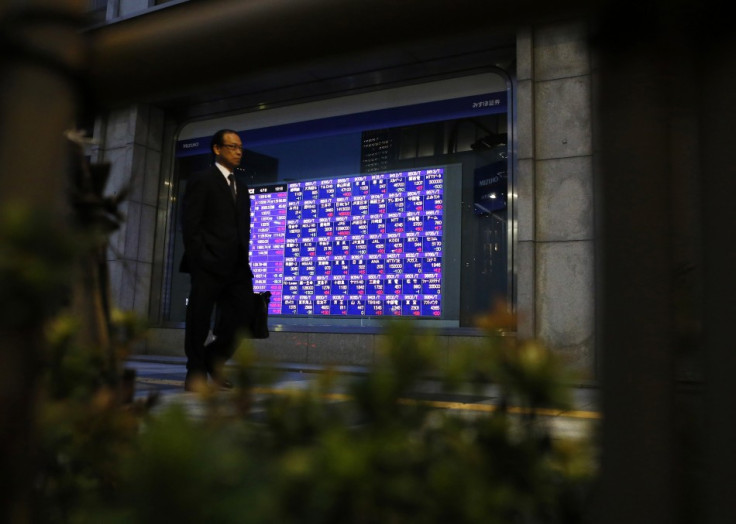European Market Briefing: Shares Head for Weekly Decline Amid Commodity Price Volatility [VIDEO]
European Market Briefing: Shares Fall for a Fourth Day as Growth Concerns Persist [VIDEO]

European stocks headed for a hefty five-day decline after an active week in which commodity price moves and surprisingly strong bond sales continued to puzzle investors around the world.
The benchmark index for European share price performance, the FTSE Eurofirst 300, is on pace to fall around 2.2 percent this week. Britain's FTSE 100 will likely record a 1.3 percent decline while Germany's DAX performance index will post a 3.3 percent slip.
German investor confidence tumbled in April as the ongoing rescue in Cyprus and slowing growth around the Eurozone took its toll on Europe's largest economy.
The ZEW Centre for European Economic Research in Mannheim said its benchmark index of investor sentiment fell to 36.3 points in April from 48.5 points in March. A poll of economist conducted by Reuters suggested experts had anticipated a reading of 42 points. The index of current conditions fell to 9.2 points from 13.6 points, the ZEW said, adding that 81 percent of those responding to its monthly survey expected no change in short-term interest rates in the next six months.
Commodities markets led investors on a wild ride this week as Gold rebounded from a two-year low to advance 4.4 percent on the week and trade north of $1,400 an ounce for the first time in seven days. The comeback was a welcome reply to Monday's 9.3 percent decline - the largest single-day decline in at least 30 years, according to Bloomberg data.
Brent crude also rebounded past an important psychological barrier of $100 a barrel while Nymex light sweet crude prices rose 1.6 percent from a one-month low to trade at $88.06 per barrel. Broader commodity prices, measured by the benchmark Standard & Poor's/Goldman Sachs Commodities Index, fell 0.32 percent on the week.
US profit figures have also helped support equity market declines in Europe and Asia as nearly three quarters of the 100-plus companies on the S&P 500 reporting first quarter earnings have beaten analysts' estimates.
Spain and Italy executed two surprisingly successful bond auctions this week despite the ongoing political and economic turmoil afflicting the fifth and third largest economies in the Eurozone. Spain raised around €4.7bn in a three-part sale that drew €12.2bn in bidding interest and the lowest borrowing costs since at least 2010. Earlier in the week, Italy raised €17bn over two-days through its sale of retail bonds to wealthy Italian households and investors.
Macroeconomic concerns also kept markets in a sombre mood, with investors kicking off the week spooked by slower-than-expected GDP growth from China and later getting confirmation of a potential slowdown in the global economy with a newly-revised Spring forecast from the International Monetary Fund.
The Fund says global growth will hit 3.3 percent this year, down from its January estimate of 3.5 percent. The forecast calls for a rebound of 4 percent in 2014, however, the same assessment it delivered in its Winter forecast. Advanced economies will grow at a 1.2 percent pace, the Fund said, down from its previous view of 1.3 percent. So-called emerging and developing economies will expand by 5.3 percent this year and 5.7 percent next year, healthy figures but still 0.2 percent and 0.1 percent lower, respectively, than the Fund predicted just three months ago.
"Global economic prospects have improved again but the road to recovery in the advanced economies will remain bumpy," the report said. "World output growth is
© Copyright IBTimes 2025. All rights reserved.





















